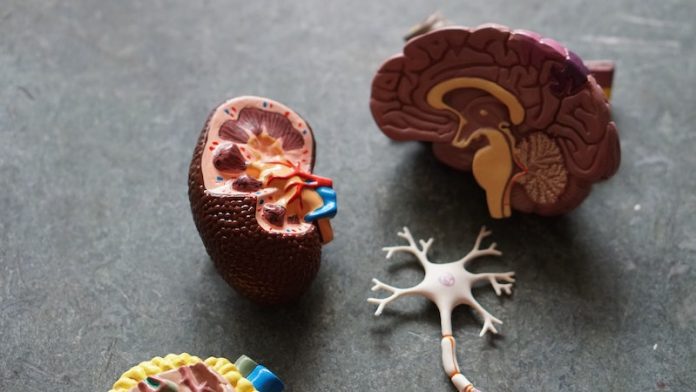
Scientists from the University of Nottingham found that certain metals found in people’s urine, could be useful biomarkers for the early detection of acute kidney injury.
The research is published in Kidney International Reports and was conducted by David Gardner et al.
Acute Kidney Injury (AKI) is a rapid deterioration in kidney function over hours or days. It is common, occurring in 10–20% of patients admitted to hospital and about 50% of patients admitted to intensive care.
It can be caused by serious illness, major operations, trauma and by some medicines such as chemotherapy.
It is widely accepted by clinicians that one of the main ongoing problems in managing AKI is the inability to detect it at a very early stage.
Currently AKI is defined by a rise in a blood test, serum creatinine, or by a fall in urine output.
These detection methods can take over 24 hours from the time of kidney damage to reveal a problem, by which time the disease process might be more difficult to manage.
There has therefore been great interest clinically and commercially over recent years in developing better tests for early detection of AKI
In this study, the team found that certain urinary metals could be potentially useful clinical biomarkers for early detection of AKI.
Working with patients with kidney injury, experts found that concentrations of the metals rose in urine from AKI patients within an hour after cardiac surgery, and were elevated on admission in ICU patients.
The biomarkers alone, or in combination (e.g. the product of Zn × Cu), had good sensitivity for detection of patients at risk of moderate to severe AKI. They also have additional efficacy in identifying patients at low risk of AKI.
Urinary Cd, Cu and Zn fulfill most desirable characteristics of biomarkers and offer clinical and economic advantages over other reported AKI biomarkers, most of which are proteins.
The urinary metals are also stable in urine at room temperature, which offers advantages in remote care settings, for example in the developing world.
Measurement of the metals is amenable to point-of-care testing using cheap screen-printed electrodes and are likely to be far more cost-effective than protein assays.
If you care about kidney health, please read studies about how to protect your kidneys from diabetes, and sunlight may increase your risks of kidney damage, autoimmune diseases.
For more information about kidney diseases, please see recent studies about common eating habits that could harm your kidney health, and results showing this common diabetes drug may reduce chronic kidney disease.
Copyright © 2022 Knowridge Science Report. All rights reserved.



